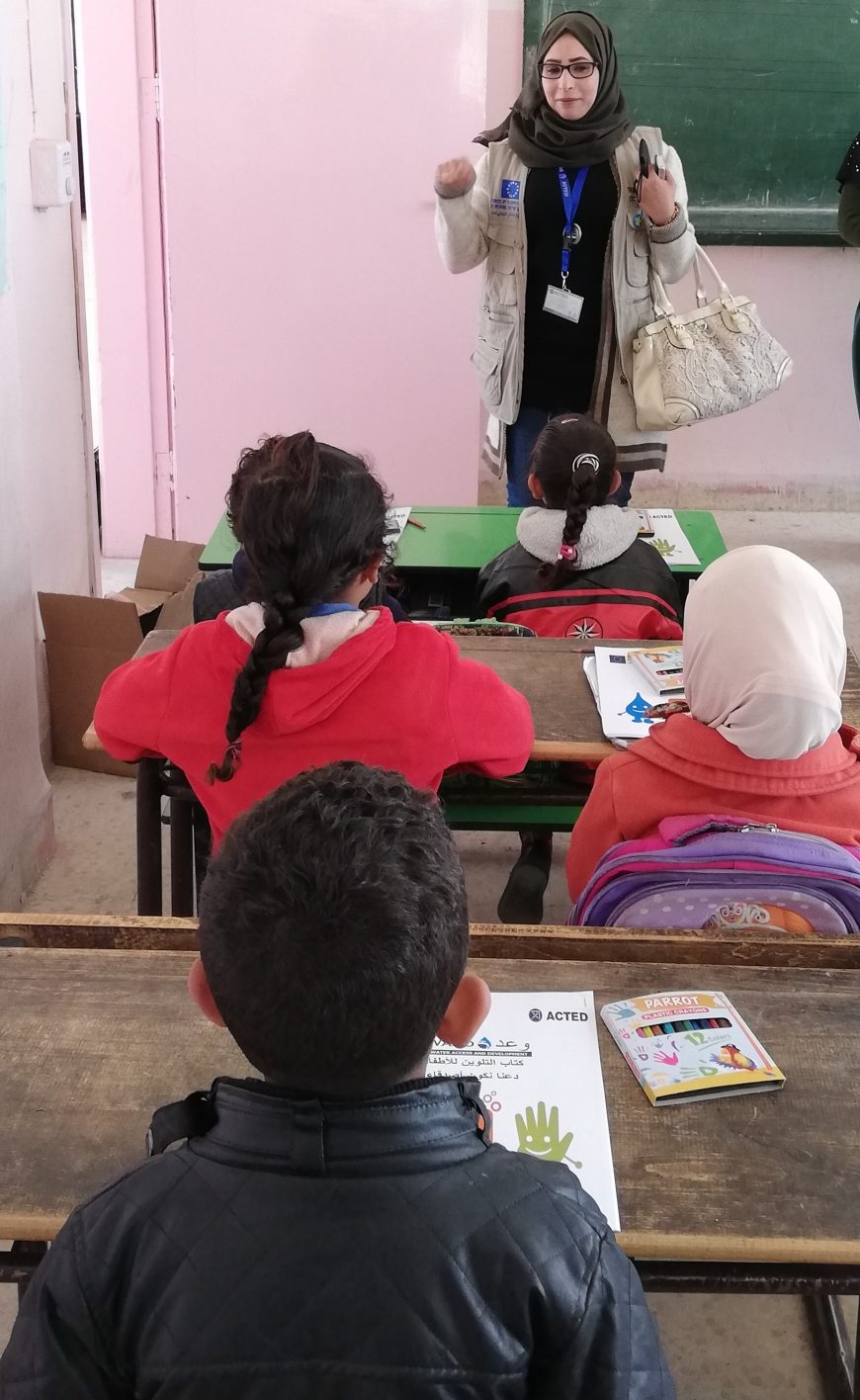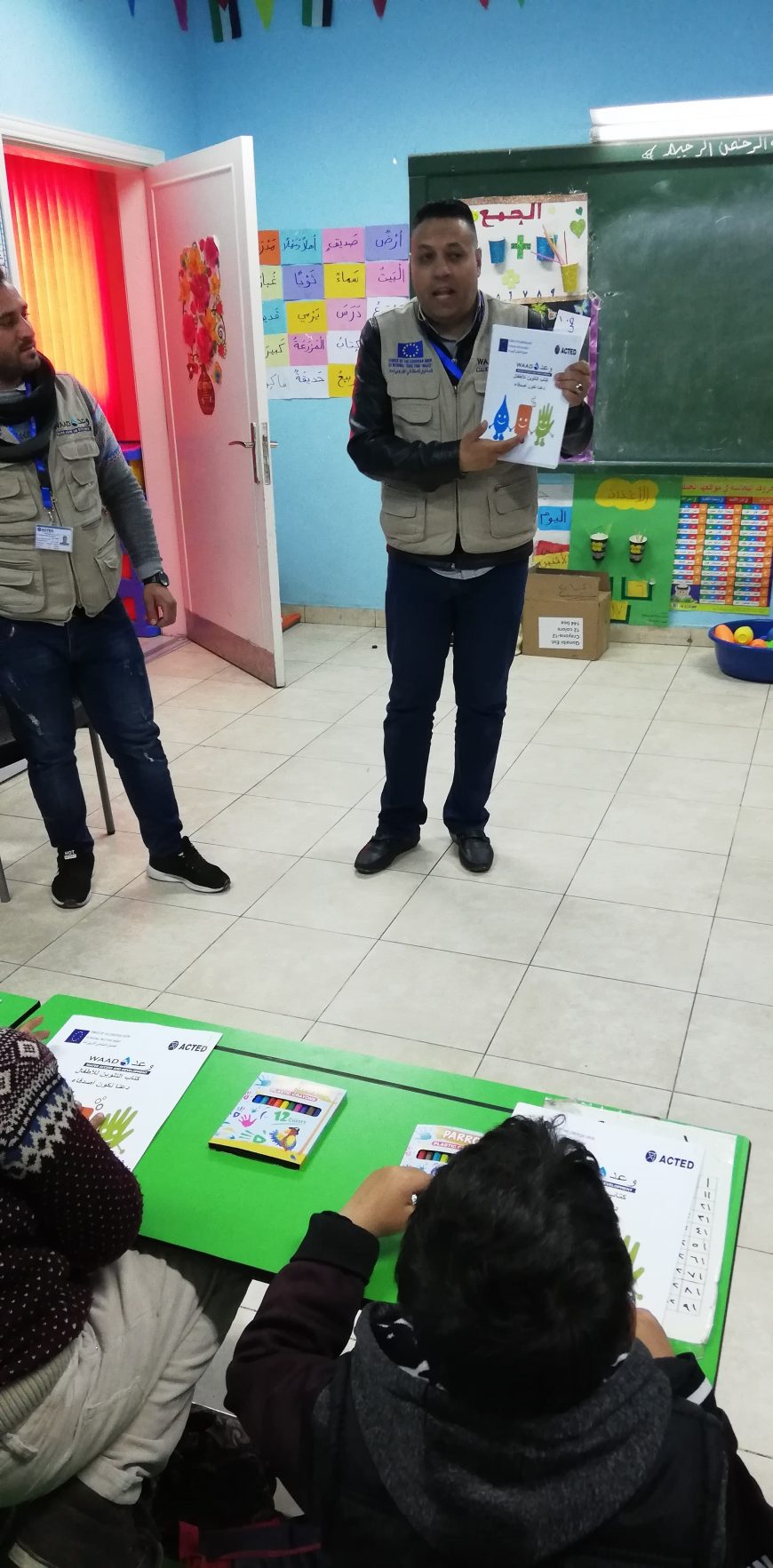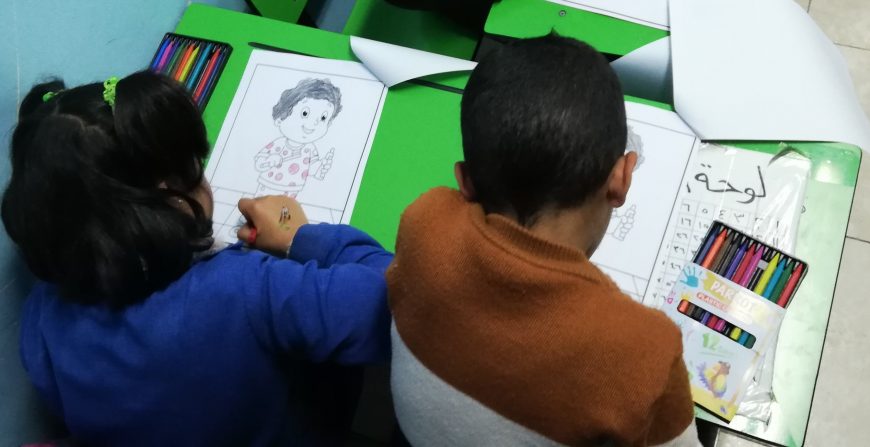In 2019, Jordan remains one of the most water scarce countries in the world. The fact that the country hosts the second largest share of refugees per capita worldwide adds to the pressure upon water resources. Children are especially affected, as many public schools have limited access to basic water and sanitation facilities, most commonly through a lack of washbasins, lighting and doors.
ACTED’s response aims to mitigate against the negative health impacts of poorly equipped washrooms through promoting good hygiene practices in the northern governorates of Jordan where the water challenges are the most acute.
Teaching children the preciousness of water
Laughter, soap bubbles, and students running around is not what you might expect walking into class on a regular school day. However, such was the atmosphere during ACTED’s hygiene promotion sessions in Al Mafradat school in April. The school is one of eleven in which ACTED is active in Mafraq governorate.
In these areas, the annual water share drops to below 100 m3 per person, five times lower than the minimum amount of water needed to earn the designation of severe water scarcity. Water demand has increased by 40% since the beginning of the Syrian crisis.

ACTED’s first task when approaching these schools was to either construct or rehabilitate the schools’ toilets and wash basins to ensure a basic level of access was achieved.
The hygiene promotion sessions also taught school children the importance of conserving water and avoiding waste through simple steps like not running water while brushing your teeth or using excessive water while washing your hands.
The sessions are child-friendly and fun; where songs, games and colouring books are used to explain good hygiene practices, including hand-washing and oral-hygiene.

Fatima is a teacher in Al Mafradat school. She has been working in the school for the last two years and she describes herself as one of the most active teachers when it comes to organizing educational and recreational activities.
Fatima identified the lack of adequate water and sanitation facilities as an everyday challenge for the students. This, combined with the fact that good hygiene practices were rarely discussed at school, meant that the school environment was putting the health of children and staff at risk.

'I believe my students really needed these sessions, they are eager to learn and are always looking for more information.'
ACTED also established student-teacher ‘Hygiene Committees’ in each target school. Their future role is to teach what they have learned about good hygiene practices to other students in their school.
This project was made possible through support from the European Union:
